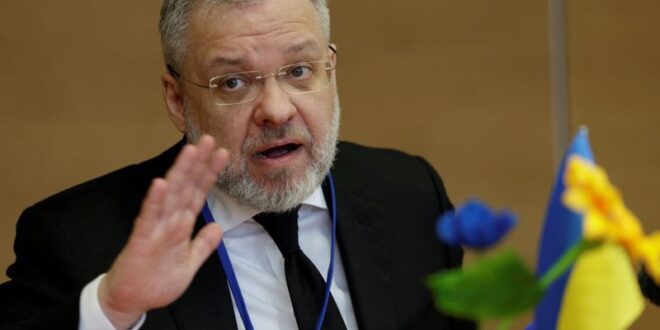VIENNA (Reuters) – Safety at the Russian-held Zaporizhzhia nuclear power plant (ZNPP) in Ukraine is worsening daily, Ukraine’s energy minister said on Friday, pledging to keep pressuring Russia at the U.N. nuclear watchdog to withdraw from the site.
The International Atomic Energy Agency’s 35-nation Board of Governors passed a resolution late on Thursday condemning Russia’s occupation of Europe’s biggest nuclear power plant and expressing “grave concern” at lack of staffing and maintenance two years after its capture.
“The general situation is moving to (a) nuclear accident and it’s very important to stop immediately this (Russian) presence,” Ukrainian Energy Minister German Galushchenko told a news conference.
“The number of problems (has) only increased each day, each day. And (in) one more month, we would have another problem. Another month, we will have some additional problems,” he said, adding that Ukraine would keep pushing for more resolutions.
The IAEA, which has a small presence at the plant, says the situation at Zaporizhzhia remains precarious. The plant has lost all external power eight times in the last 18 months, forcing it to rely on diesel generators to cool the fuel in its reactors and avoid a potentially catastrophic meltdown.
Russia and Ukraine, at war for more than two years, have blamed each other for shelling that has downed power lines.
Ukrainian staff who previously worked for Ukrainian state-owned power-generating company Energoatom continue to operate the plant alongside newer Russian arrivals, although some of the Ukrainians have been denied access since February for refusing to sign Russian contracts.
“The staff working at the ZNPP now consists exclusively of former Energoatom employees who have adopted Russian citizenship and signed employment contracts with the Russian operating entity, and staff who have been sent to the ZNPP from the Russian Federation,” a confidential IAEA report sent to member states last week and seen by Reuters said.
“The ZNPP staff reportedly were continuing to be under strong psychological stress of various kinds,” it added.
Before the war there were around 11,500 staff at the plant, the report said. Now IAEA staff at the plant have been told that number is around 4,500, while the number of staff present each day was around 2,000 in the past quarter.
Russia says the plant has enough staff to operate the six reactors, which are currently in shutdown.
IAEA chief Rafael Grossi has put the number of holdouts refusing to sign Russian contracts at around 100. Galushchenko said that was “another Russian lie” and the real number was 380.
“The problem is not even in the quantity of people. The problem is that these people are top-level personnel. That’s not … average personnel which you could easily substitute.”
Grossi discussed Zaporizhzhia at a meeting with Russian President Vladimir Putin on Wednesday that was “professional and frank”, the IAEA said in a statement.
(Reporting by Francois Murphy; Editing by Ros Russell)
 BeritaKini.biz Berita Viral Terkini di Malaysia
BeritaKini.biz Berita Viral Terkini di Malaysia





